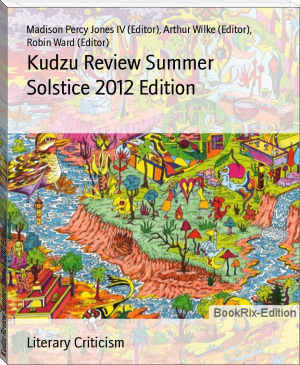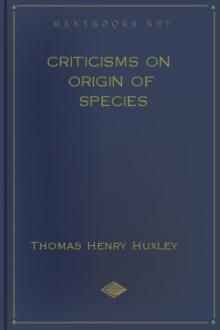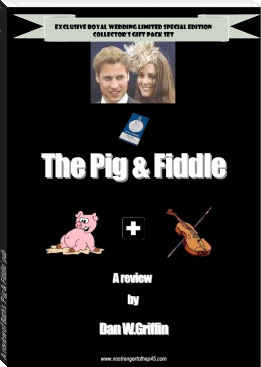Kudzu Review Summer Solstice 2012 Edition - Madison Percy Jones IV (Editor), Arthur Wilke (Editor), Robin Ward (Editor) (readict books .txt) 📗

Book online «Kudzu Review Summer Solstice 2012 Edition - Madison Percy Jones IV (Editor), Arthur Wilke (Editor), Robin Ward (Editor) (readict books .txt) 📗». Author Madison Percy Jones IV (Editor), Arthur Wilke (Editor), Robin Ward (Editor)
_________________________________
Kudzu Review
Volume Two, Issue One
Summer Solstice 2012.
______________
____________________________________________
Kudzu Review 2.1
http://kudzureview.com
Literature of an Invasive Species.
Print Subscription Rates:
One Issue: $10.00
Two Issues: $16.00
Order online at kudzureview.com.
Online Subscription Rates:
One Issue: $6.00 (Suggested Donation)
Two Issues: $10.00 (Suggested Donation)
Our electronic versions of Kudzu Review are available for download for free so that the Kudzu may grow uninhibited. If you enjoy an electronic copy of Kudzu Review, we hope that you will take the time to support our cause by a small suggested donation to our publication at www.kudzureview.com. If you have ordered a hard copy of Kudzu Review, feel free to enjoy the 001 001 variety at no extra charge.
Also available for Kindle & iBooks.
Kudzu Staff:
Senior Editors:
M.P. Jones IV, Editor-in-Chief
Arthur Wilke, Field Editor
Robin Ward, Web-Design Editor
Associate Editors:
Powell Burke, Fiction & Revisions Editor
Jane Alford, Nonfiction & Revisions Editor
Ashley Sams, Visual Art Editor
Front Cover by Sean Abrahams; Back Cover,“High Above,” by Eleanor Leonne Bennett. Special thanks goes to Iris Kish at The Type Shop.
Kudzu Review is a biannual, southern journal of environmental Poetry, Art, Fiction, & Essay, published by a private, staff-owned company and run primarily out of Auburn, Alabama. We are always accepting submissions for consideration. Details available at kudzureview.com.
Copyright © 2012 Kudzu Review
____________________________________________
What a thrilling experience this issue has been: going through our reading period, attending conferences and literary festivals to promote KR across the country, and learning the ropes of going into print! The staff and I have grown so much just watching this magazine spread branches all over the midwest, deepen roots in the south, and have so many quality pieces to show for all of our hard work.
I would like to point to Jonathan Highfield’s poem “Hippobear,” a shining example of a post-natural or “new nature” poem, which is also a hilarious look at genetic modification that simultaneously embraces a poetics of local narrative reminiscent of late Wordsworth, and also to R.W. Haynes, who proves that sonnets still can hold their own, nay, belong in modern collections. We have place-protest fiction by Andy Myers, and poems by Salma Ruth Bratt & award-winning author Karla Lynn Merrifield. Also re-joining us is Sue Blaustein, with her electric-amp’d poems, and many other talented voices, emerging and well-known.
But this isn’t just a creative writing publication, no, Kudzu Review defines itself with every issue into a hybrid journal of environmental thought. We have creative- nonfiction and post-natural fiction by W.C. Bamberger, and our very first Nonfiction article, on Masuji Ibuse’s Black Rain, is by University of Montevallo’s own graduate student Jamie King, which reveals the startling (yet disturbingly comforting) possibility that humans, invasive as they may be, may be only able to destroy human life.
Endless thanks, as always, for the KR team’s tireless efforts. Our gratitude goes out to Iris Kish of Montevallo’s local print shop, The Type Shop, for your knowledge and patience with us as we made the transition into print. Thanks to Duotrope, Upenn CFP, and all the other independent places where writers gather. Special thanks to everyone who donated to Kudzu Review by means of t-shirt, paperback purchase, Kindle Edition, or plain generosity—your patronage is so important. Most of all thank YOU the reader and every single submitter, selected or not, for making this journal greater than the sum of its parts.
As always:
may the Kudzu grow!
Cheers,
M.P. Jones
Editor-in-Chief
She says the dead must be cut away
if anything is to bloom
in the coming spring.
It’s something doctors know
as well. The dead skin.
The crushed limb.
The still fetus.
These must go.
It’s straight-forward.
The living must
cut away the dead
if they are to go on
living. It’s easy
for gardeners
and doctors
and neighbors
and even friends,
even old friends,
to say.
She grows poems in her backyard.
Some she tends, pruning dead phrases,
trellising lines, dividing and moving
stanzas, and some she lets grow wild,
simply scattering images and words
on the ground and letting what happens
happen. Some seasons the blooms
and colors attract the admiration
of everyone in the neighborhood,
and they say she should sell some
at the farmer’s market or consider
going into business. Some seasons
the yard lies dormant, seemingly
not a garden at all, but a vacant lot,
a blank page, and yet, underneath
the surface, word attaches to word,
phrase finds phrase, and eventually
something pushes into sight to change
her small square of the world.
In one version, the clear woman
falls into the wellspring
that is the Florida aquifer.
The cold, the dark do comfort her.
She swims in the safety of sweet
water in limestone vaults beneath the skin
of the Everglades. She bubbles up
where the palm warblers buzz applause.
In another iteration it is
the clear poet who is also
a woman who falls into a sinkhole
on the sawgrass prairie – such cool
salvific water of water moccasins
in the driest of dry winter seasons.
Black vultures swoop their approval
as she emerges from the pool gasping
for awe, and her dream goes on.
In yet a third variation, the poet
who is clear like the barred owl who laughs,
falls into a borrow pit where enough
bedrock was excavated for road fill
to engineer a lake. Though alligators
be present, three crows, one by one,
bathe in the shallows. Warm water
at water’s edge. They caw raucously,
and she rises, heads toward them for shore.
No one, nothing drowns in this river of grass story,
no matter how you tell it: The water is always holy.
for Chris Crittenden
Every morning they came to the beach and waited. Some sat in small short-legged chairs, whose plastic stripes left lines on their legs. Others stepped into the water and waded, until the waves splashed up against their calves. They clutched fishing poles and even daydreamed, as they used to when everything was fine.
Boats motored out from the marina. Men looked past one another, standing and smoking on the bleached dock. Some shook their heads, while others frowned.
That’s how it was in the early part of the day.
By afternoon, the boats were back. Chairs had been folded on the beach and carried to waiting cars and some to cottages. The suits of those who’d carried their poles into the water and pretended that nothing had changed were no longer damp.
As the men returned to the dock, they looked past one another and scowled. This can’t be, they muttered. It’s impossible, another said, and the next man offered a hopeful response. Maybe better tomorrow. Manny, who’d always had a tendency to exaggerate, said, “Yeah, but what if they don’t come back?”
You see, something unimaginable had occurred, in the lukewarm water that softened the shoreline alongside this sleepy place. The fish had all gone away.
A way of life, Andy Coughlin said and spat.
Two months had passed, and Andy who’d been fat since childhood was getting thin. He had enough money to buy groceries, but his appetite, like the fish, had vanished. Here was a man who could put away an entire bucket of boiled shrimp, with a cold pitcher of beer and a loaf of just-baked white bread slathered with melted butter, and then scarf down dessert, and he didn’t





Comments (0)